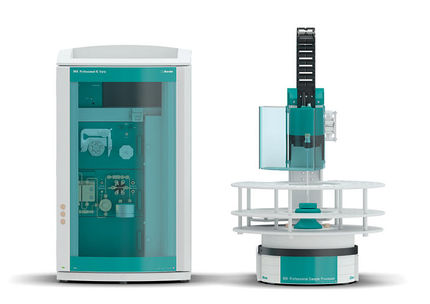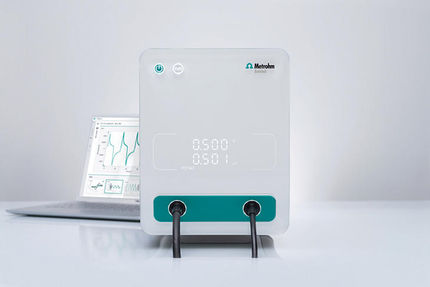To use all functions of this page, please activate cookies in your browser.
my.chemeurope.com
With an accout for my.chemeurope.com you can always see everything at a glance – and you can configure your own website and individual newsletter.
- My watch list
- My saved searches
- My saved topics
- My newsletter
Short QT syndrome
Short QT syndrome is a genetic disease of the electrical system of the heart. It consists of a constellation of signs and symptoms, consisting of a short QT interval interval on EKG (≤ 300 ms) that doesn't significantly change with heart rate, tall and peaked T waves, and a structurally normal heart. Short QT syndrome appears to be inherited in an autosomal dominant pattern, and a few affected families have been identified. Product highlight
Symptoms and signsIndividuals with short QT syndrome frequently complain of palpitations and may have syncope (loss of consciousness) that is unexplained. Mutations in the KCNH2, KCNJ2, and KCNQ1 genes cause short QT syndrome. These genes provide instructions for making proteins that act as channels across the cell membrane. These channels transport positively charged atoms (ions) of potassium into and out of cells. In cardiac muscle, these ion channels play critical roles in maintaining the heart's normal rhythm. Mutations in the KCNH2, KCNJ2, or KCNQ1 gene increase the activity of the channels, which changes the flow of potassium ions between cells. This disruption in ion transport alters the way the heart beats, leading to the abnormal heart rhythm characteristic of short QT syndrome. Short QT syndrome appears to have an autosomal dominant pattern of inheritance. Due to the autosomal dominant inheritance pattern, most individuals will have family members with a history of unexplained or sudden death at a young age (even in infancy), palpitations, or atrial fibrillation. Short QT syndrome is associated with an increased risk of sudden cardiac death, most likely due to ventricular fibrillation. DiagnosisThe diagnosis of short QT syndrome consists of characteristic history and findings on EKG and electrophysiologic testing. There are currently no set guidelines for the diagnosis of short QT syndrome. ElectrocardiogamThe characteristic findings of short QT syndrome on EKG are a short QT interval, typically ≤ 300 ms, that doesn't significantly change with the heart rate. Tall, peaked T waves may also be noted. Individuals may also have an underlying atrial rhythm of atrial fibrillation. Electrophysiologic StudiesIn the electrophysiology lab, individuals with short QT syndrome are noted to have short refractory periods, both in the atria as well as in the ventricles. Also, ventricular fibrillation is frequently induced on programmed stimulation. EtiologyThe etiology of short QT syndrome is unclear at this time. A current hypothesis is that short QT syndrome is due to increased activity of outward potassium currents in phase 2 and 3 of the cardiac action potential. This would cause a shortening of the plateau phase of the action potential (phase 2), causing a shortening of the overall action potential, leading to an overall shortening of refractory periods and the QT interval. In the families afflicted by short QT syndrome, mutations have been described in three genes, KvLQT1, the human ether-a-go-go gene (HERG), and KCNJ2. TreatmentCurrently, the only effective treatment option for individuals with short QT syndrome is implantation of an implantable cardioverter-defibrillator (ICD). A recent study has suggested that the use of certain antiarrhythmic agents, particularly quinidine, may be of benefit in individuals with short QT syndrome due to their effects on prolonging the action potential and by their action on the IK channels.[1] While the use of these agents alone is not indicated at present, there may be benefit of adding these agents to individuals who have already had ICD implantation to reduce the number of arrhythmic events. See alsoReferences
|
|||||||
| This article is licensed under the GNU Free Documentation License. It uses material from the Wikipedia article "Short_QT_syndrome". A list of authors is available in Wikipedia. | |||||||







